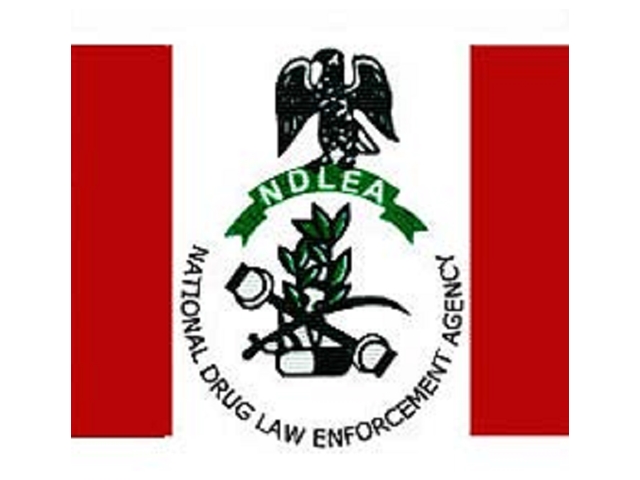There is one recent event in Abuja that again brought to the fore that the global fight against trafficking in drugs is far from being won. It is the statement on Sunday, April 4 2021 by Femi Babafemi, Director of media and Advocacy, National Drug Laws Enforcement Agency (NDLEA), that the agency at the departure lounge, Abuja International Airport, found N564 million worth of heroin in the possession of one 40-year-old Nigerian.
While meditating on the damage such volume of illicit drug could have done to the future leaders of this world, the statement more than anything reminds me of how participants at a focused group discussion held in Lagos, a few years ago, bemoaned the infestation of our nation by social problems perpetrated consciously and unconsciously by her own people. Warning that under this condition, it may be thought audacious to talk of creating a better society while we are still battling with the problems of battered economy arising from corruption, social vices and decay of institutions.
- After Daily Trust story: Buhari fires IGP Adamu over poor management, escalating insecurity
- Osinbajo absent as Dare opens 2020 National Sports Festival
Going by what medical experts are saying, evidence has since emerged and it demonstrates how uncensored intake of junks in the name of food, has placed humanity at a higher health hazard than the conventional health risks associated with drug abuse.
So what does this mean to our nation where every day ‘exciting progress’ is made in the consumption of these substances without recourse to prescription?
From reports by the United Nations Office on Drugs and Crimes (UNODC), there are but three main forms of drug abuse. They include the use of; mood-altering or psycho-active drugs, performance-enhancing drugs and dependency drugs.
While mood-altering or psychoactive drugs such as codeine, tramadol affect people’s reasoning ability and give the abuser the wrong sense of wellbeing, performance-enhancing drugs such as cocaine, heroin drug give extra stamina or energy to the abuser.
Dependency drugs on its part typify drugs people abuse in the course of trying to overcome some health issue or challenges or taken to maintain a particular lifestyle. In physical dependence, the person using a drug over a period of time would have developed an intense reliance on drugs, often to avoid difficult withdrawal symptoms. The person will often crave (strong desire) to use the drugs despite the damaging consequences to their physical, mental and social wellbeing. Drug users can also experience psychological dependence in which they believe it is necessary to use a drug to function sometimes just at social gatherings or all the time.
This challenge from what experts are saying is further nourished by our not being ready as a nation to confront the underlying cause(s) of drug dependency and other associated behaviours. Our unwillingness to collectively assist the abusers to focus on un-learning such negative behaviours and in its place develop the required skills and positive attitudes to achieve a drug-free society as currently preached the world over.
Very regrettably, in abandoning this responsibility, one fact we fail to remember is that drug dependence is not based on a personal weakness or lack of morals on the part of the abuser but a chronic relapsing medical condition- a reality that, in my opinion, qualifies these people for our love and not vilification or abandonment.
For a better understanding of the plights of the abusers, we must begin to imagine what it would look like if those drug abusers were to be from our families. We can imagine ourselves participating in the funerals of our dear ones that passed on, no thanks to substance abuse.
Sincerely, our failure to love and care for these drug addicts in our society, makes us more socially sick than the abusers.
In all, for us to win this war, all hands must be on decks. We must learn to be good role models and empower young people to deal with life challenges and stay away from substance abuse. We can achieve this by forming drug-free clubs in our schools and also making drug education part of the curricula of primary and secondary schools in Nigeria. Teenagers need to get accurate and detailed information about substance use from trusted and reliable adults, be it a parent or a teacher.
On the factors fueling the habit, it will by no means be an exaggeration to state that apart from negative peer influence, unemployment and a continuous avenue to escape problems and worries are the major reasons why Nigerian youths, in particular, take to the drug. This, however, may not be the only explanation fueling this social evil.
Specifically, the deliberate desire by these youths to hide their weaknesses, failure on the part of the family to train the youths on the way they should go, broken home influence, and pressure to succeed at all cost also promote this social menace.
From this standpoint, it is a clear socioeconomic problem that we collectively as a nation will have to determine how to solve- as the future strength of our nation depends on these young people.
To succeed in this job, there are but two important sets of information. First, to the government; with current poor funding, poor personnel in number and training, this war against drug abuse may continue to be a difficult one unless something drastic is done by the government at all levels to reverse the trend. Secondly, the abuser must recognise that drug abuse has both short and long term effects, but unfortunately, both lead to one destination- death.
Re-orientation on our cultural values by faith-based organisations and the civil society groups will assist the youths to drop illicit consumption of drugs and unwholesome behaviours that endanger their lives and threaten the society. Parents and guardians must strive to influence which people capture their children’s imaginations and always be aware of who their friends are and what places they frequent.
Youths on their part must recognise that ‘the future is full of promises as it is fraught with uncertainty. And should, therefore, develop the capacity to seek activities laced with the highest values
Utomi is the Programme Coordinator (Media and Policy), Social and Economic Justice Advocacy (SEJA), Lagos.

 Join Daily Trust WhatsApp Community For Quick Access To News and Happenings Around You.
Join Daily Trust WhatsApp Community For Quick Access To News and Happenings Around You.

